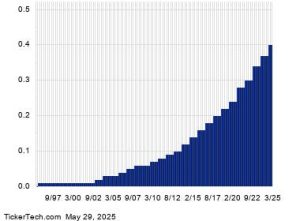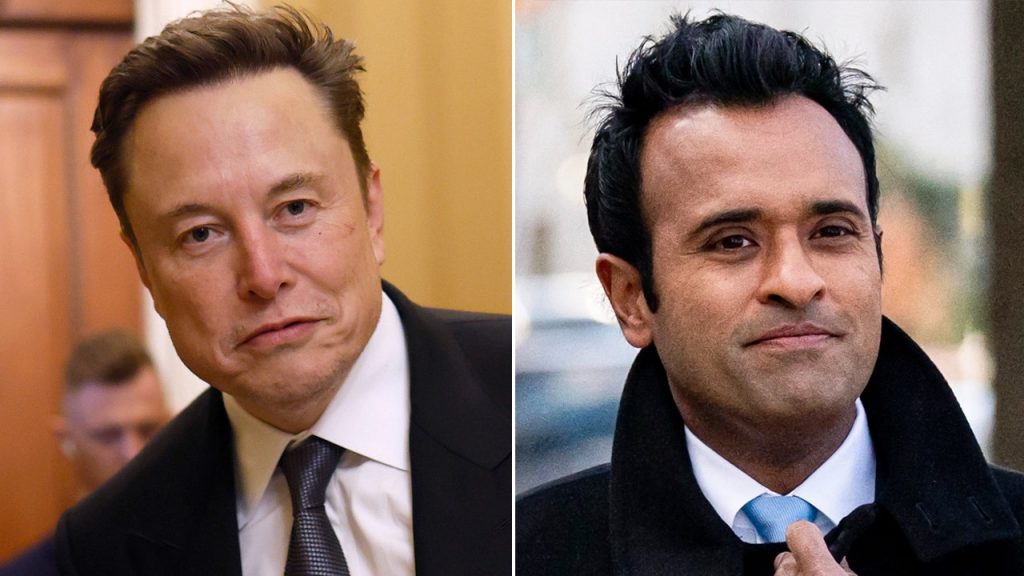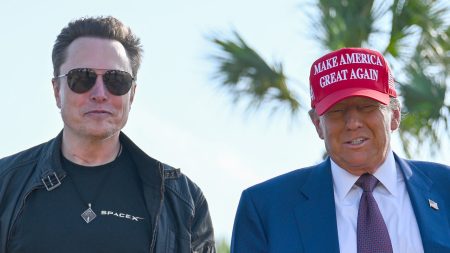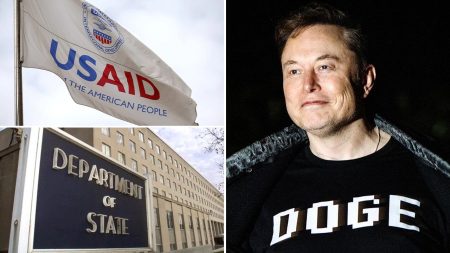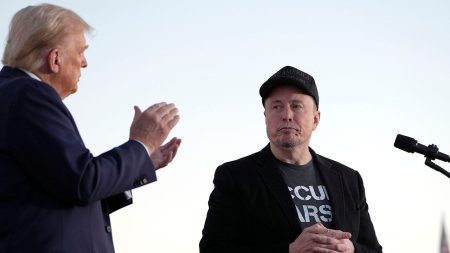The nascent “Department of Government Efficiency” (DOGE), spearheaded by Elon Musk and Vivek Ramaswamy, advisors to President-elect Trump, aims to drastically reduce federal spending by $2 trillion over the next two and a half years. While Congress hasn’t officially sanctioned DOGE, Musk and Ramaswamy have met with Republican lawmakers, promoting the initiative as a crucial step towards fiscal responsibility. They emphasized the need for budget cuts, framing congressional spending decisions within a “naughty or nice” list framework, highlighting the importance of responsible use of taxpayer dollars. Republicans have expressed strong support for DOGE and its objectives, emphasizing their commitment to cutting fraud, waste, and abuse. However, the path to realizing these ambitious cuts is fraught with legislative hurdles.
The primary obstacle is the slim Republican majority in the House. With a narrow 219-215 advantage, which will further dwindle to a single vote after two Republican representatives depart for other positions, Republicans lack the votes to unilaterally implement their agenda. This necessitates bipartisan cooperation, which seems unlikely given Democratic skepticism of Musk and his involvement. Many Democrats view Musk as a controversial figure, questioning his intentions and expressing doubts about the efficacy of his proposals. This political divide, combined with the inherent complexity of budget negotiations, poses a significant challenge to DOGE’s success. Furthermore, securing the necessary statutory authority and navigating the complex appropriations process will require significant legislative maneuvering and compromise.
Historical precedent offers valuable insights into the challenges of achieving substantial spending cuts. Past initiatives, such as the Clinton-Gore “Reinventing Government” effort, managed to reduce the federal workforce significantly, only to see those jobs gradually reappear over time. Similarly, the “Domenici-Rivlin” plan and the Simpson-Bowles commission offered detailed recommendations for debt reduction and fiscal reform, but their impact on actual spending was limited. The 2011 “supercommittee,” tasked with averting a debt ceiling crisis, ultimately failed to reach a consensus, leading to automatic spending cuts through sequestration. These examples underscore the difficulty of enacting and sustaining deep spending cuts, particularly in a politically divided environment.
The current political landscape further complicates the pursuit of fiscal austerity. President-elect Trump has declared that entitlements, including Social Security and Medicare, are “off the table” for cuts, despite their significant contribution to federal spending (over 60%). This stance contradicts calls from some Republican lawmakers to reform these programs, including adjusting the retirement age, to ensure their long-term solvency. Moreover, Republicans generally favor increasing military spending, further limiting the potential for cuts in other areas. Democrats argue that the desired level of savings cannot be achieved solely through efficiency measures, highlighting the fundamental disagreements about spending priorities.
The proposed $2 trillion in cuts is a substantial target, requiring difficult choices about which programs to prioritize. The political ramifications of cutting popular programs or failing to deliver on promised reductions are significant, adding another layer of complexity to the debate. The conflicting priorities of different factions within Congress, combined with the narrow Republican majority, will make it extremely difficult to achieve consensus on a comprehensive spending reduction plan. Balancing the competing demands of fiscal responsibility, popular programs, and political realities will require careful negotiation and compromise.
The success of DOGE hinges not only on navigating the legislative process but also on achieving genuine bipartisan support. The current political climate, marked by deep partisan divides and skepticism toward Musk’s involvement, makes such cooperation challenging. Furthermore, the scope of the proposed cuts, combined with the President-elect’s commitment to protecting entitlements and increasing military spending, limits the available options for significant reductions. Past experiences with similar initiatives highlight the difficulty of achieving and maintaining substantial spending cuts.
Ultimately, the fate of DOGE remains uncertain. Its success will depend on the ability of its proponents to navigate the complex legislative landscape, build bipartisan consensus, and make difficult choices about spending priorities. The American public will be watching closely to see whether this ambitious initiative can deliver on its promises of greater government efficiency and fiscal responsibility, or whether it will become another chapter in the ongoing struggle to control federal spending.
